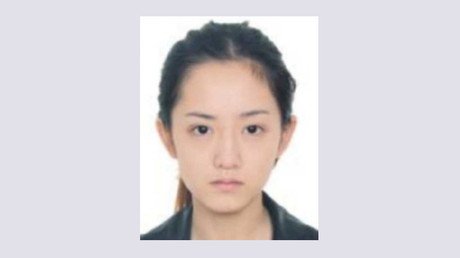In Her Majesty's service: How UK reportedly pushes anti-Russian propaganda in EU
The Integrity Initiative claims to be a group fighting back against 'Russian misinformation,' but leaked files show a clandestine network of influencers that manipulate European politics with the British government's backing.
Formed in 2015, the Integrity Initiative (II) was set up by the UK-based Institute for Statecraft – a national security think tank – to "reveal and combat propaganda and disinformation." But think-tanks like the Atlantic Council have been picking through RT articles and monitoring Twitter for what they deem is "wrongthink" for some time now. What's different about this one?
Well, according to documents leaked online this month, the II is more than just a network of like-minded neoliberals. It's a large-scale "information service", whose influencers are drawn from political, military, academic, and journalistic communities, and answer to the British government.
Also on rt.com EU-wide ‘anti-Russian psy-ops’ program confirms UK govt funding, Anonymous denies leakThe setup
A project proposal form, signed off on by the British Foreign and Commonwealth Office, details the extent of the operation. First, a network of friendly journalists, experts, and think tanks was established across Europe.
'Clusters' of II influencers liaise with experts, and these leaders in turn reportedly answer to a contact within their country's British embassy. Hackers who leaked the file and claim to be Anonymous (though a major Anonymous account has denied the claim) say the use of contacts in British embassies shows that "Britain uses plausible excuse to create a global system of information influence and political interference into affairs of other countries."
Clusters, not cells
Spies during the Cold War were organized in cells. The II's influencers are instead reportedly organized in 'clusters', which are active in ten countries: Spain, France, Germany, Italy, Greece, The Netherlands, Lithuania, Norway, Serbia and Montenegro, as listed in the documents.
Similar clusters are reportedly planned in more than 20 other countries, including countries in the Middle East and North Africa, as well as the USA.
Funding
To do this, the II asked for £480,625 ($611,783) from the British government in 2017, and had a total yearly budget of just under two million pounds ($2.5mn) this year, the leak suggests. This funding was provided by NATO, the Lithuanian Ministry of Defense, the US State Department, the Smith Richardson Foundation, a handful of German businesspeople, and Facebook.
Hiding in plain sight
The operatives are not Jason Bourne-style secret agents, skulking in the shadows. Rather they're well-known journalists, academics and public figures, many of whom are open about their anti-Russian views. Contacted by Bellingcat, the people on the list said that they "attended some event" and then were put on II roaster.
I've talked to a few of the people that the Integrity Initiative listed as "Cluster Members". They've said that they just attended some event they put on, and then were added to their roster. They didn't do any additional work with or for Integrity.https://t.co/mngDZeAtPn
— Aric Toler (@AricToler) November 23, 2018
RT has also reached out to some of the people named in the clusters. In a statement to the channel, Edward Lucas said that the documents prove nothing and he was not paid by the Institute for Statecraft, but he supports their work.
"I have not been paid by the Institute. But I applaud their work in dealing with the Chekist regime's pernicious information and influence operations," the journalist wrote. He added that it is better to investigate what he called "real Russophobia," accusing the Russian government of "looting" the nation, "bullying neighboring countries and murdering its critics."
Meanwhile, Stephen Blank, Senior Fellow at the American Foreign Policy Council, called the leak "utter nonsense."
Influencers
In establishing a presence, the clusters were tasked with finding friendly, anti-Kremlin faces. These contacts would work as influencers, spreading the message that Russia was not to be trusted.
According to the leaked papers, in France, the team made contact with officers in the French military and installed a member in the renowned Sorbonne University. In the Netherlands, the Dutch Ministry of Defense was contacted, and a conference was held. In Lithuania, members linked up with the Lithuanian Armed Forces and a university in Kaunas. In Italy, Spain, and Greece, cluster members anonymously provided information to journalists as a means of steering conversation.
In Belgium, a research network was set up at the Free University of Brussels, with the aim of creating a "discrete network" of think tanks that would introduce the topic of Russian misinformation back in their home countries.
How do we know the docs are real deal?
So far, the II on Monday confirmed receiving funding from the British government, but was careful to neither confirm nor deny anything said in the materials, even the sums mentioned.
Subscribe to RT newsletter to get stories the mainstream media won’t tell you.














